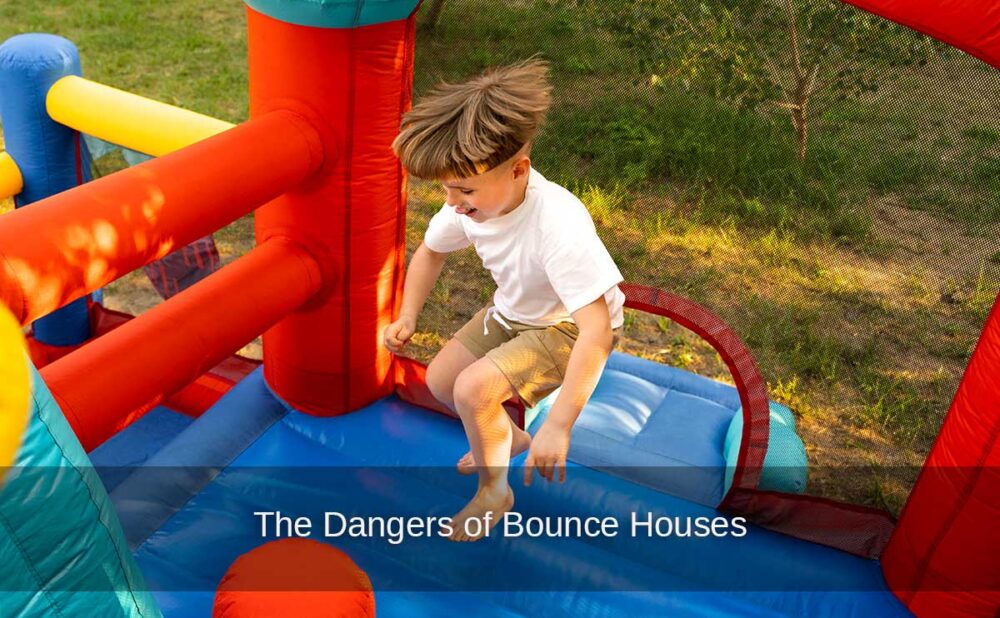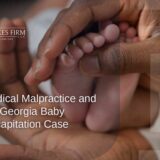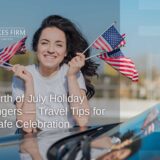The Dangers of Bounce Houses and Liability in Georgia
Bounce houses, also known as inflatable amusement devices, have become a staple at children’s parties and community events across Georgia. While they offer hours of fun, they also pose significant safety risks. Understanding these dangers and the legal implications of injuries can help parents, event organizers, and homeowners take proactive steps to ensure safety and know their rights in case of an accident.
Common Injuries Associated with Bounce Houses
Each year, bounce houses injure thousands of children. The U.S. Consumer Product Safety Commission links more than 4,000 emergency room visits annually to inflatable amusements. Injuries range from minor sprains and bruises to severe fractures and, in rare cases, fatalities. Common causes include:
- Overcrowding. Allowing too many children inside at once increases the risk of collisions and falls.
- Inadequate Supervision. Without proper oversight, children may engage in unsafe behaviors like flips or roughhousing.
- Poor Setup. Inadequate anchoring or setup can lead to the inflatable becoming airborne, especially in windy conditions.
- Defective Equipment. Manufacturing defects or wear and tear can compromise the safety of the inflatable.
Legal Liability in Georgia
Determining liability in bounce house accidents in Georgia depends on various factors, including the location of the incident, the parties involved, and the circumstances leading to the injury.
Private Residences
If negligence is proven, homeowners who host events with rented bounce houses may be held liable. This includes failing to properly secure the inflatable, inadequate supervision, or ignoring weather conditions that could pose risks. Homeowners’ insurance policies may cover such incidents, but coverage can vary, and some insurers may contest claims based on negligence.
Public Events and Commercial Venues
At public events or commercial venues, liability can extend to multiple parties:
- Bounce House Rental Companies. They are responsible for providing safe, well-maintained equipment and ensuring proper setup. If a defect or improper setup leads to an injury, the rental company may be held liable.
- Event Organizers. They have a duty to ensure the safety of all attractions, including bounce houses. This involves verifying that equipment meets safety standards and that adequate supervision is in place.
- Venue Owners. Property owners may be held responsible if unsafe conditions on their premises contributed to the injury.
Waivers and Liability Releases
Many rental agreements require participants or guardians to sign waivers, releasing the provider from liability. In Georgia, such waivers are generally enforceable but have limitations. They cannot protect against gross negligence or willful misconduct. If an injury results from such actions, the waiver may not prevent a lawsuit.
Georgia Regulations and Safety Standards
Georgia has established regulations to enhance the safety of amusement rides, including inflatable devices. The Georgia Department of Labor’s Safety Engineering Section oversees the inspection and certification of amusement devices. Key regulations include:
- Insurance Requirements. Operators must maintain liability insurance to cover potential injuries.
- Safety Standards. Compliance with ASTM standards for design, operation, and maintenance is mandatory.
- Operational Guidelines. Operators must ensure that they do not overcrowd rides. Operators must operate rides at safe speeds and in safe conditions.
However, it’s important to note that these regulations primarily apply to commercial operations and may not cover private rentals or residential use. This gap underscores the importance of vigilance and adherence to safety practices by all parties involved.
Preventive Measures for Safe Use
To minimize the risk of injury, consider the following safety guidelines:
- Supervision. Always have a responsible adult present to monitor children and enforce safety rules.
- Age and Size Restrictions. Ensure that children of similar age and size use the bounce house together to prevent accidents.
- Weather Awareness. Avoid using bounce houses during adverse weather conditions, such as high winds or storms.
- Proper Setup. Ensure the inflatable is securely anchored and set up on a flat, debris-free surface.
- Equipment Maintenance. Regularly inspect the inflatable for signs of wear or damage and address any issues promptly.
While bounce houses can provide hours of entertainment, they also carry inherent risks. Understanding the potential dangers, legal liabilities, and safety regulations in Georgia can help mitigate these risks. Whether you’re a parent, homeowner, or event organizer, taking proactive steps to ensure safety can prevent accidents and ensure that fun doesn’t turn into misfortune.
For more information on safety regulations and guidelines, visit the Georgia Department of Labor’s Safety Engineering Section.





